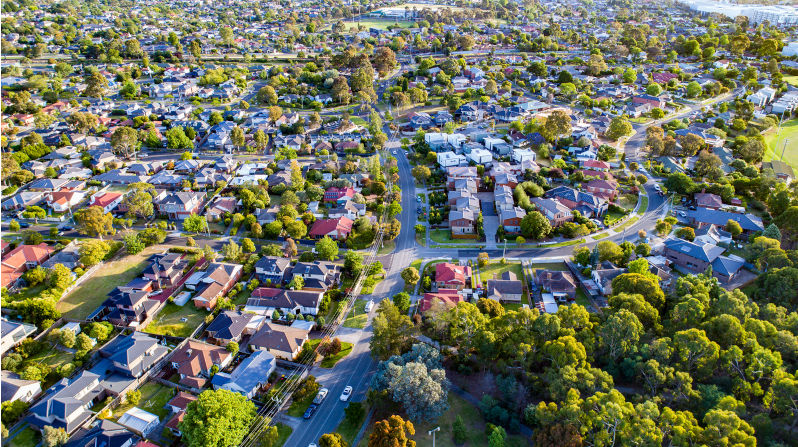Local power: How councils turn conversations into energy upgrades
June 29, 2025
When it comes to cutting emissions and lowering power bills, many Australian households won’t be swayed by glossy ads, government policies, or even rebates. What often gets people to take action is a conversation – with a friend, a neighbour, or someone they trust.
With more than 11 million homes across Australia needing some kind of energy upgrade — from insulation and solar to efficient hot water or heating systems — the challenge isn’t just about money or technology. It’s about trust, relevance, and simplicity.
That’s why local councils, such as Merri-bek and Hume, two councils in Melbourne’s north, are emerging as one of the more effective, and under-utilised, players in the clean energy transition.
Conversations that change behaviour
Last month, Francis Vierboom, Rewiring Australia CEO, told the Energy Efficiency Conference that personal stories are key to mobilising change.
“We need to scale stories that help people understand why they would make the decision [for an energy upgrade]. We need to scale stories for installers to see why they should point their business towards the opportunity to electrify homes.”
That’s already happening in Merri-bek, where the personal touch is delivering results. After identifying low-income households vulnerable to heat and high energy bills, Merri-bek council mailed out personalised letters from the Mayor, offering $2000 rebates for insulation or draught proofing, and $3,000 for solar.
The result was a 40% uptake in the program.
“The mayor really swings it for people,” says Donna Luckman, Merri-bek’s zero carbon campaigns lead, told the SwitchedOn Australia podcast. “Something that’s personalised to you makes more of an impact than a whole lot of other comms.”
“People trust council,” says Luckman. “They know council, so it’s easier for them to take that next step.”
Lloyd Heathfield, solar and electrification lead at the not-for-profit Yarra Energy Foundation, agrees: “Local legitimacy is far more important than technical knowledge.”
YEF collaborates with Hume City Council to deliver the Hume Home Energy Upgrades program. So far they’ve helped deliver over 120 home energy upgrades in Hume, including solar, insulation, and efficient heating and cooling, and unlocked more than $300,000 in state and federal rebates, often for households that would otherwise be locked out of the clean energy transition.
The power of a conversation
But the conversations also have to be appropriate.
A few years ago, Merri-bek surveyed residents and discovered something surprising: many people didn’t even know which appliances in their homes were running on gas and which on electricity. Some still believed gas was more environmentally friendly than electricity because it wasn’t coal.
In response, the council changed its approach. Rather than leading with carbon savings or tech specs, it focused on comfort, health, and relatable stories.
“People aren’t influenced by facts and figures,” Luckman says. “They’re influenced by what their friends and neighbours are doing.”
One such neighbour is Maria, a pensioner from Pascoe Vale who was so impressed by the workers who installed her insulation, she started telling others and convinced them to sign up for upgrades too. “She felt like they were her brothers,” says Luckman.
Merri-bek also employs community outreach workers like Sarah Hussein, who has been working with culturally diverse groups across the municipality, from Muslim women and Indian families to Italian retirees and refugee households.
“You can’t go into a refugee household and start talking about solar panels,” says Hussein. “You start by talking about the health of their kids, or the comfort of their home, and work from there.”
Hussein avoids jargon and technical terms, tailoring conversations to each group. “We speak their language, both literally and culturally. That’s what builds trust.”
Her conversations often begin with familiar concepts like recycling, before moving to energy bills and, eventually, energy upgrades. “They don’t want a post or a brochure – they want a conversation with someone they know.”
YEF have also found that comfort and health are prime motivators. “People aren’t calling up to ask about reverse-cycle air conditioners,” says Heathfield. “They’re saying, ‘I’m so bloody cold in this house, and my bill is so bloody high – I need a solution now.’”
People also need support to navigate the complexity of rebates, installers and technology.
“Councils are uniquely placed to break that complexity down, and when they do, people respond,” says Heathfield.
That’s where Merri-bek’s concierge-style program comes in. They provide eligible residents a personal guide to help them choose upgrades, apply for rebates, and coordinate installation.
Scaling up the personal
While Merri-bek has had success — 285 households have participated in their energy upgrade program, saving nearly $200,000 in combined energy bills — Luckman says scaling this kind of labour-intensive, person-to-person model requires serious investment.
“There’s a pathway to do this nationally,” she says. “We just need to invest in the people to do the outreach work.”
That means creating local jobs, building teams of community-based energy concierges, and ensuring councils have the resources to co-ordinate programs.
Right now, the average council only has 0.3 of a full-time staff member working on sustainability and energy upgrades. In smaller regional areas, there may be no-one at all.
To help fill this gap, Merri-bek has created a communications guide on the benefits of electrification, which is now used by over 100 councils around Australia. They’ve also developed an online platform where councils can share tools and templates.
Merri-bek’s work has inspired the City of Canning in Perth to launch its own electrification campaign – the first of its kind in Western Australia.
Republished from One Step Off The Grid 26 June 2025
The views expressed in this article may or may not reflect those of Pearls and Irritations.

